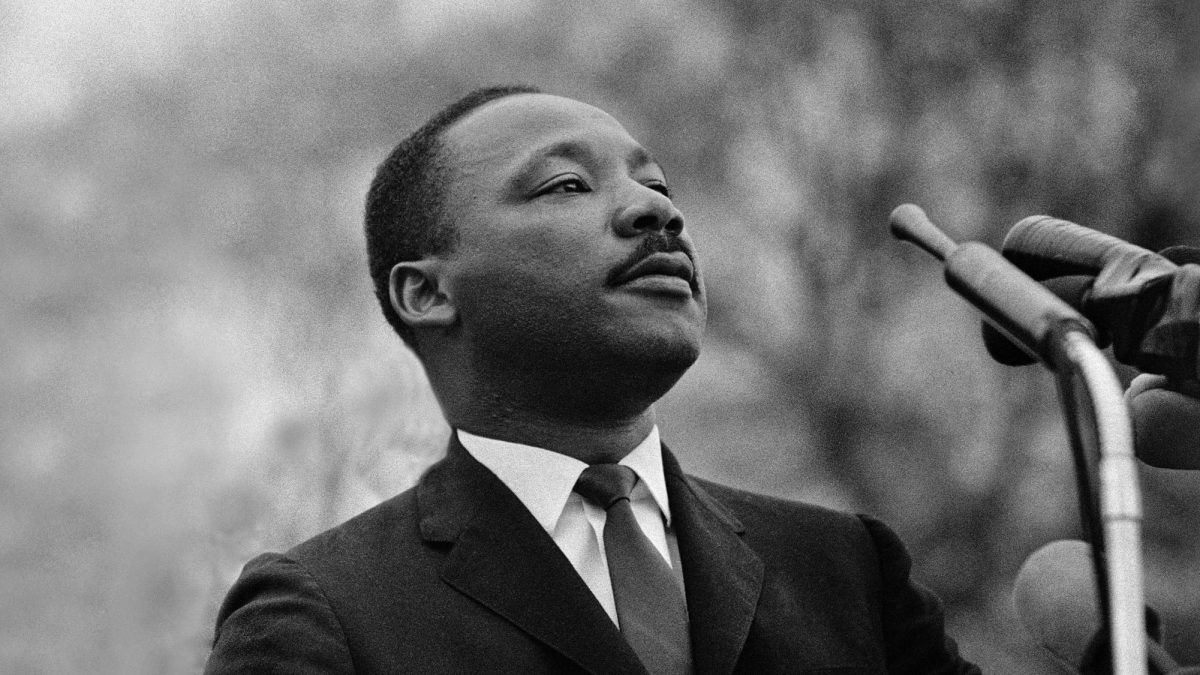In the United States, since 1983 with President Ronald Reagan, the third Monday of January each year is a federal holiday. This year, the American citizens will observe this holiday on Monday, January 20. As you might know, this day was created in remembrance of Martin Luther King. You have probably heard his name more than once but do you really know who he is and how he has impacted the United States ?
Historic context
Martin Luther King was born during the Segregation Era which lasted from the end of the Civil War (1865) to the Civil Rights Movement (1954-1968). Segregation is defined as the action of separating people, historically on the basis of race and/or gender. During this period, African-Americans and Whites were separated in everyday activities, in professional life, and in the exercise of civil rights. It became an official policy under a series of Southern laws called Jim Crow laws.
In 1896, in the case Plessy v. Ferguson, the Supreme Court established the constitutionality of laws mandating separate but equal public accommodations for African Americans and Whites, making the Jim Crow Laws constitutional. “In the long term, segregation has been hurtful for our country because today, even if there’s no legal segregation anymore, I still think that there’s a lot of feelings that people have. Obviously, there still are racists out there and people who choose to self-segregate.”, Ben Davis social studies teacher Ryan McMaster said to Spotlight. With that being said, it’s during a period where America was fragilized by racism and discrimination towards the African-Americans that Martin Luther King grew up, which has supported his desire to fight for the rights of his community.
Introduction to Martin Luther King
Michael King Jr., commonly known as Martin Luther King Jr., was born on January 15, 1929 in Atlanta, Georgia. He was named after his father, Michael King Sr., who changed his name in 1934 for Martin Luther King Sr. in reference to the German Protestant leader after a trip to Berlin. Martin King Jr. grew up with his parents and his two siblings in Atlanta. In elementary school, he was attending a school for black children only due to the segregation that was in place at that time. He had made a friend who was white in his neighbourhood and who was attending an elementary school for white children but his friend’s parents stopped allowing him to play with their son because “they were white, and he was colored”. In high school, he was known for his public-speaking ability as he was part of the debate team. He pursued his education by studying at Morehouse College–-an all-male historically black college—where he graduated with a Bachelor of Arts in sociology. He also took several courses at the University of Pennsylvania before beginning doctoral studies in systematic theology at Boston University. At the age of 25, King began a religious career when he was called as a pastor in a Baptist Church in Alabama. Soon after, he started to be involved in protests and public speaking in response to the different segregationist laws that he and the other African-Americans had to face. “I think that he wanted to take action for the African-American rights especially for his children because he understood that if someone didn’t step up and take action, even if it was just speaking out against it, nothing was ever going to change. He was a really good speaker, well educated and had a charisma that not everyone had which made it easier for him to ask his friends to help him in the different protests and boycotts he was involved in and spread the message around his community.”, declared Ryan McMaster.
His life as an activist
Montgomery Bus Boycott, 1955
In March 1955, a 15-year-old black girl refused to give up her seat to a white man in violation of Jim Crow laws. Nine months later, Rosa Parks—an American activist in the civil rights movement who was honored by the United States Congress as “the first lady of civil rights” and “the mother of the freedom movement”—was arrested for refusing to give up her seat on a city bus.
The two incidents led to the Montgomery bus boycott, which was planned by Edgar Nixon—an American civil rights leader— and led by King. During the 385 days of boycott, the Montgomery black citizens stayed off the buses to show their discontent. The situation became so tense that King’s house was bombed. He was also arrested and jailed for travelling at 30 mph in a 25 mph zone which drew the attention of national media and increased his public popularity. The controversy ended when the US District Court issued a ruling that prohibited racial segregation on Montgomery public buses, transforming King into a national figure of the civil rights movement.
March on Washington , 1963
On 28 August 1963, more than 200,000 demonstrators took part in the March on Washington for Jobs and Freedom in the capital of the US. The March has successfully pressured the administration of President John F. Kennedy to initiate a strong federal civil rights bill in Congress.
Music played a powerful role at the March, and decades later, the performances remain some of the most iconic of the era. People traveled from every corner of the country to join the March in the aim of demanding an end to segregation, fair wages and economic justice, voting rights, education, and long overdue civil rights protections. It is also during this historic event that Martin Luther King Jr. delivered perhaps one of the most famous speeches in American history.
King’s speech is known for its “I have a dream…” passage which is only one section of a very powerful speech. Throughout his speech, he talked about his dream of an America that treats all its citizens equally. He said how hopeful he was to see one day his children judged by the content of their character and not the color of their skin. Moreover, he spoke of his dream to transform the heat of injustice and the heat of oppression into an oasis of freedom and justice. These words, still known for their power and the hope that they brought, facilitated the passage of the Civil Rights Act of 1964.
Selma to Montgomery Marches
In 1965, three protest marches were held from Selma, Alabama, to the state capital of Montgomery. Those protests were organized in the aim of demonstrating the desire of African-Americans to exercise their constitutional right to vote. By fighting against racial injustice and showing their anger towards segregationists, they have contributed to the passage of the Voting Rights Act that prohibits racial discrimination in the right to vote.
Even after his death, everyone still remembers him
As an activist, Martin Luther King has participated in a lot of different events including protests, marches or public speaking. He has contributed to improving the rights of African-Americans and ending the segregation that was in place. The Montgomery Bus Boycott, the Selma March and the March on Washington are all examples of his notable actions that have helped the African-American community throughout the past decades.
“Even if he wasn’t the only one who has contributed to those improvements, the media chose him as the leader of the Civil Rights movement which makes him one of the most famous figures who has fought for the rights of the Black community still nowadays.” said social studies teacher Ryan McMaster about the influence that King has had throughout the past decades.
On April 4, 1968, King was assassinated while standing on a balcony outside his room at a hotel in Memphis, Tennessee. Even years after his death, he is still an iconic figure of the African-American community, which is why we will celebrate his successes and remember the improvements he made on Monday January 20, 2025.









